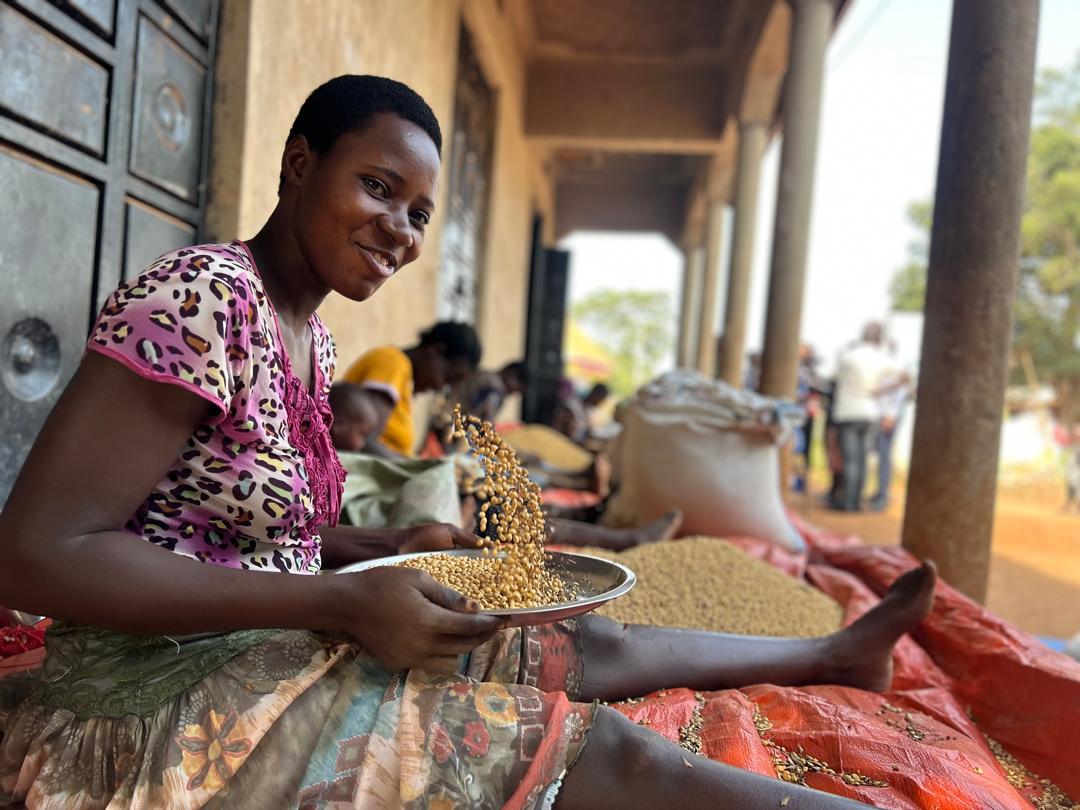Kampala, Uganda: East-West Seed, one of the world’s leading vegetable seed companies, has introduced climate-smart vegetable seeds to help smallholder farmers adapt to erratic weather, protect yields, and improve nutrition.
The company, through its 22 Research and Development centers across nine countries, including Benin and Tanzania, continues to adapt vegetable varieties to local climates and Africa’s diverse agroecological zones.
In Uganda, Simon Groot, founder of East-West Seed and 2019 World Food Prize winner, dedicated his prize money — more than US$250,000 — to growing the pumpkin sector, highlighting the company’s long-standing commitment to East Africa.
Through its non-profit arm, the East-West Seed Knowledge Transfer Foundation (EWS-KT), the company works with farmers to share practical skills in good agricultural practices, market access, and agribusiness management. EWS-KT is active in Nigeria, Ghana, Uganda, Tanzania, and South Sudan, reaching thousands of smallholders annually. More than 50% of its funding comes from external partners, enabling scaling across Africa.
East-West Seed is rolling out climate-resilient, hybrid varieties of tomato, okra, and amaranth. These are developed for short growing cycles, heat tolerance, and disease resistance. They give farmers — including a growing number of young people entering agriculture — a better chance at reliable harvests and reduced losses despite challenging conditions.
“Vegetables are a fast track to better nutrition, incomes, and climate resilience,” said Pamela Afokpe, East-West Seed spokesperson based in Benin. “When farmers have access to seeds that mature quickly, withstand heat, and resist disease, they can plan with confidence and invest in the future of their farms and families.”
The company is also putting research effort into lesser-known but high-potential crops. In Benin, breeders are advancing Gboma, an African leafy vegetable valued for its resilience and nutritional benefits. In both East and West Africa, pumpkin — a nutrient-dense crop with strong tolerance to dry conditions — is being promoted as a viable commercial option.
Across the Sahel and West Africa, smallholder farmers in Northern Ghana, Northern Nigeria, and other parts of the dryland belt face erratic rainfall and poor yields. East-West Seed’s hybrid varieties, combined with knowledge transfer, are helping these communities strengthen food security and adapt to worsening climate impacts.
With over 650 varieties across 80 crops and decades of breeding for tropical conditions, East-West Seed is aligning its work with Africa’s growing demand for climate-resilient agriculture. The company, which employs over 2,800 people, has been recognized globally — ranked No. 1 in the Access to Seeds Index and twice listed on the Fortune Change the World list (2020 and 2024). Its foundation, EWS-KT, has trained nearly 1 million farmers across Africa and Asia.
About East-West Seed
Founded in 1982 by Simon N. Groot, a sixth-generation seedsman from the Netherlands, East-West Seed is a global leader in the development and distribution of tropical vegetable seeds. The company has been ranked #1 in the Global Access to Seeds Index for its commitment to serving smallholder farmers. East-West Seed works hand-in-hand with local breeders, agronomists, and farmers to improve food security and farmer incomes through high-quality seeds and knowledge transfer.
East-West Seed’s business model is centered around smallholder farmers as they form the vast majority of vegetable producers globally. The company supports farmers to increase the yield and quality of their crops by providing them with improved seed varieties.
East-West Seed develops tropical vegetable seeds through local market-oriented plant breeding. Varieties need to be developed under local farming conditions to make them suitable and adaptable to smallholder farmers. They breed for what the market wants. They understand the local needs and see what is happening in the market and diet. The seeds are produced on a contract farming basis, creating new income opportunities for rural communities.
(https://www.eastwestseed.com/).
About East-West Seed Knowledge Transfer Foundation
Established to bridge the gap between seed technology and farmer success, the EWS-KT Foundation provides smallholder farmers particularly women and youth with training on modern vegetable farming techniques.
Using farmer-managed demonstration plots as hubs, EWS-KT provides farmers with hands-on training in profitable and sustainable vegetable cultivation practices, paired with training in business planning and market integration. EWS-KT field staff guide farmers through every step of the crop cycle, from planning and land preparation through post-harvest handling.
Active in five African countries, the foundation partners with donors, NGOs, and governments to scale impact. (www.ews-kt.com)


















